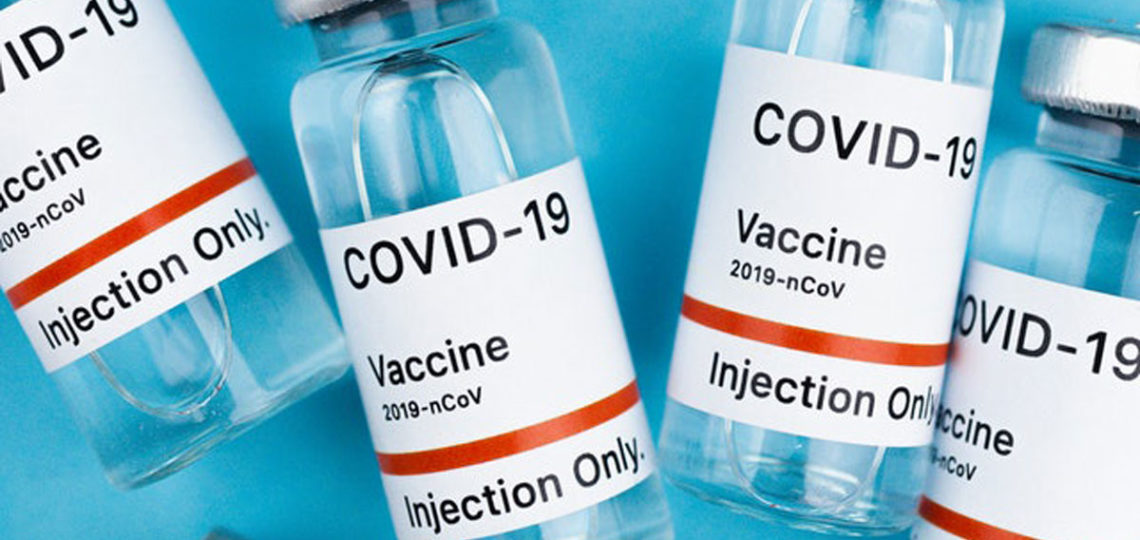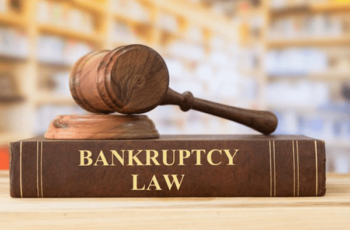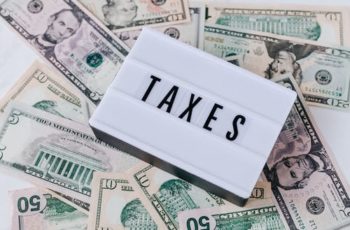Indemnification of Vaccine makers during COVID-19: Analysing the Global Position
Why Vaccine Developers are asking for Indemnification?
In the tough times of Covid-19, ripples of positive waves have now hit the shore as vaccine developers and some of the nations have begun the vaccination drives and have already started distributing vaccines. Vaccination is seen as the last bastion of hope in order to curb the spread of the Coronavirus. Different vaccine developers have already completed their phase-II trials and are now conducting phase-III trials. With that, these developers are also applying for the emergency-use authorization of their vaccines to facilitate the availability of the medical countermeasures during the current public health emergency so as to mitigate the total human and economic loss. These authorizations are state-specific and are governed by the sovereign laws of the respective nations. In India, New Drugs and Clinical Trials Rules, 2019 provides for the procedure of accelerated approval whereas, in the US, Food and Drugs Administration has specific laws to deal with the emergency procedure.
Although, the move to grant authorization is in the favour of public safety because vaccination would eventually control the spread of the virus, however, the troubling point in the whole process is the subject-matter of liability and indemnity concerning vaccine developers. These vaccine developers are seeking exemption from any sort of product liability claims that could arise due to the distribution and consumption of their Covid-19 vaccines and are asking for indemnity from any legal actions. Developers are stating that in the normal course, the vaccine takes more than 5 years to be fully-prepared and clinically tested, however, in the present case, due to unprecedented situations and public health emergency, vaccines have been developed within a span of one year and hence, even after rigorous testing at present, there are chances of vaccine side-effects.
Countries like UK and Australia have accepted their demands and have offered legal indemnity to some of the vaccine developers in their signed contracts. Even other countries are discussing on a similar note so that they can get the availability of the vaccines faster. Therefore, pressure has now been mounted on the other nations, especially in India where the number of Covid cases are high, to take the decision regarding indemnification and to decide the correct shoulders to put the whole risk related to a vaccine in the present circumstances.
Position in other Countries
As per the principles of fairness, the vaccine developers are liable to compensate for any side-effects that may arise as a result of consumption of the vaccine. Although, the concept of liability may differ from state to state, however, the determining factor is the development of a product i.e. vaccine, and the liability arising out of it. In the United States, a manufacturer producing and selling any defective vaccine and therefore, creating a risk of significant injury is made liable under Section 402A of the Restatement of Torts. Section 402A states that-
1) One who sells any product in a defective condition unreasonably dangerous to the user or consumer or to his property is subject to liability for physical harm thereby caused to the ultimate user or consumer, or to his property, if
- the seller is engaged in the business of selling such a product, and
- it is expected to and does reach the user or consumer without substantial change in the condition in which it is sold.
2) The rule stated in Subsection (1) applies although
- the seller has exercised all possible care in the preparation and sale of his product, and
- the user or consumer has not bought the product from or entered into any contractual relation with the seller.
There have been situations in which the manufacturer has been made liable. One can refer to the case of Griffin v. the United States [1]https://casetext.com/case/griffin-v-united-states-38/case-summaries?PHONE_NUMBER_GROUP=Cin which the government was held liable for having created a recognizable risk of harm by the improper release of Oral live virus Polio vaccine. Similarly, in the case of Grinnell v. Charles Pfizer & Co[2]https://casetext.com/case/grinnell-v-charles-pfizer-co/?PHONE_NUMBER_GROUP=C, the court made the manufacturer liable for its defective Salk polio vaccine under the principles of strict liability. Likewise, there are many other cases in which the manufacturer was made liable.
Nevertheless, the Public Readiness and Emergency Preparedness Act of 2005 which has now been invoked in the US has provided blanket immunity for pharma companies from being sued as the invocation of the Act has made the pharma company immune from any suit and liability under federal and state law concerning all claims for loss caused by, arising out of, relating to, or resulting from the administration to or use by an individual of a covered countermeasure that helps to control a public health crisis. The protection that has been granted will remain till 2024 and it will include the legal protection on making and distributing critical medical supplies. The Act will protect the developer from all the liabilities that arise unintentionally and without any wilful misconduct and it covers all those involved in the development, manufacture, testing, distribution, administration, and use of such countermeasures[3]https://www.federalregister.gov/documents/2020/03/17/2020-05484/declaration-under-the-public-readiness-and-emergency-preparedness-act-for-medical-countermeasures.
Even after such blanket immunity, a victim in the US is not remediless and can therefore approach under the Countermeasures Injury Compensation Program which is administered and run by the Department of Health and Human Services. Even so, the procedure is arduous and it offers limited protection, citizens of US are not left legally abandoned. Much like the US Compensation program, UK, EU, and other countries also have their respective Vaccine Compensation and damage programs. Even recently, Canada has also introduced its National Compensation Program based on the concept of no-fault injury for any Covid-19 approved vaccine injuries.
On Contrary, India does not offer any such vaccine compensation programs despite having several specific laws like the Epidemic Diseases Act, Vaccination Act, Drug and Cosmetics Act, Public Liability Insurance Act. Some of the vaccine manufacturers and developers have asked the Indian government to follow the trend of other jurisdictions and to provide them with immunity and indemnification. It is irrefutable that India has a heterogeneous population and is different from the Western world; however, it is necessary for India to decide the most favourable scenario for the Indian population.
Providing absolute indemnity to the vaccine developers would result in losing the vaccine confidence, therefore India should rather balance the interest of the public as well as the vaccine developers. It can choose one of the approaches that are, firstly, India could provide indemnity to the vaccine developers for any unintentional damages resulting due to vaccine and in that cases, damages can be compensated by the government through introducing a vaccine compensation programme however with the caveat that the vaccine would be provided in the cheaper rates or secondly, India can indemnify the manufacturers from any legal suit only and not from providing compensations in cases of severe side-effects resulting out of their product i.e. vaccine. Both the approaches can be feasible as it balances the interest of both the stakeholders. however, there is a probability that in the second case, the vaccine developers may sell their vaccines at a higher rate as they would set their prices keeping in mind the odds of providing compensations. The government can consult with other developing countries as well to have a uniform approach and can further make a proper policy to deal the respective situation.
Balancing the Interest of the Stakeholders
Certainly, it is for the legislature to decide and settle the moot point as they are in the best position to take decisions related to public importance and substantial national interest. Nonetheless, the decision should be taken keeping in mind the high population rate of India and its after-effects like increase in morbidity and mortality rates and erosion of vaccine-confidence, if in case indemnification is granted to them and any unfortunate adversity takes place. Moreover, the right to claim compensation and damages is a part and parcel of the right to life and that shall not be barred as it would be a direct intrusion to the rights of the citizens.
The government should rather think of drafting a victim compensation law instead of providing absolute indemnity and it should make certain the respective authority i.e. government or the developer, that will compensate the victim in any mishappening taking place due to vaccine. All in all, it is in the national interest that, while the vaccination drive has started in other nations, India should firmly and fastly decide the issue of indemnity and compensation before making the vaccine available in public so that the public is well aware of the prospects and consequences of the Covid vaccine which is made available before using it for immunizing themselves so that later there is no defense of misconception of fact available with them.
References
| ↑1 | https://casetext.com/case/griffin-v-united-states-38/case-summaries?PHONE_NUMBER_GROUP=C |
|---|---|
| ↑2 | https://casetext.com/case/grinnell-v-charles-pfizer-co/?PHONE_NUMBER_GROUP=C |
| ↑3 | https://www.federalregister.gov/documents/2020/03/17/2020-05484/declaration-under-the-public-readiness-and-emergency-preparedness-act-for-medical-countermeasures |









 He holds a Bachelor’s and Master’s Degree in Corporate Secretaryship and a Degree in Law. He is a Fellow member of the Institute of Company Secretaries of India and an Associate Member of the Corporate Governance Institute, UK and Ireland. He has also completed a program from ISB on ‘Value Creation through Mergers and Acquisitions.
He holds a Bachelor’s and Master’s Degree in Corporate Secretaryship and a Degree in Law. He is a Fellow member of the Institute of Company Secretaries of India and an Associate Member of the Corporate Governance Institute, UK and Ireland. He has also completed a program from ISB on ‘Value Creation through Mergers and Acquisitions. Mr P Muthusamy is an Indian Revenue Service (IRS) officer with an outstanding career of 30+ years of experience and expertise in all niche areas of Indirect Taxes covering a wide spectrum including GST, Customs, GATT Valuation, Central Excise and Foreign Trade.
Mr P Muthusamy is an Indian Revenue Service (IRS) officer with an outstanding career of 30+ years of experience and expertise in all niche areas of Indirect Taxes covering a wide spectrum including GST, Customs, GATT Valuation, Central Excise and Foreign Trade. During his judicial role, he heard and decided a large number of cases, including some of the most sensitive, complicated, and high-stake matters on insolvency and bankruptcy, including many cases on resolution plans, shareholder disputes and Schemes of Amalgamation, De-mergers, restructuring etc.,
During his judicial role, he heard and decided a large number of cases, including some of the most sensitive, complicated, and high-stake matters on insolvency and bankruptcy, including many cases on resolution plans, shareholder disputes and Schemes of Amalgamation, De-mergers, restructuring etc., Ms. Sarah Abraham has been enrolled with the Bar Council of Tamil Nadu since 1998. Her areas of practice include Shareholder Disputes, Corporate Compliances, Mergers and Acquisitions, Private Equity/ Venture Capital Agreements and allied disputes, Information Technology Contracts, Intellectual Property, General Commercial Agreements, Litigation, Arbitration and Mediation.
Ms. Sarah Abraham has been enrolled with the Bar Council of Tamil Nadu since 1998. Her areas of practice include Shareholder Disputes, Corporate Compliances, Mergers and Acquisitions, Private Equity/ Venture Capital Agreements and allied disputes, Information Technology Contracts, Intellectual Property, General Commercial Agreements, Litigation, Arbitration and Mediation. A K Mylsamy is the Founder, Managing Partner and the anchor of the firm. He holds a Degree in law and a Degree in Literature. He is enrolled with the Bar Council of Tamil Nadu.
A K Mylsamy is the Founder, Managing Partner and the anchor of the firm. He holds a Degree in law and a Degree in Literature. He is enrolled with the Bar Council of Tamil Nadu. M Subathra holds a Degree in law and a Master’s Degree in International Business Law from the University of Manchester, United Kingdom. She is enrolled with the Bar Council of Tamil Nadu.
M Subathra holds a Degree in law and a Master’s Degree in International Business Law from the University of Manchester, United Kingdom. She is enrolled with the Bar Council of Tamil Nadu. Mr. K Rajendran is a former Indian Revenue Service (IRS) officer with a distinguished service of 35 years in the Indirect Taxation Department with rich experience and expertise in the fields of Customs, Central Excise, Service Tax and GST. He possesses Master’s Degree in English literature. Prior to joining the Department, he served for the All India Radio, Coimbatore for a period of about 4 years.
Mr. K Rajendran is a former Indian Revenue Service (IRS) officer with a distinguished service of 35 years in the Indirect Taxation Department with rich experience and expertise in the fields of Customs, Central Excise, Service Tax and GST. He possesses Master’s Degree in English literature. Prior to joining the Department, he served for the All India Radio, Coimbatore for a period of about 4 years. An MBA from the Indian Institute of Management, Calcutta, and an M.Sc. in Tourism Management from the Scottish Hotel School, UK, Ashok Anantram was one fo the earliest IIM graduates to enter the Indian hospitality industry. He joined India Tourism Development Corporation (ITDC) in 1970 and after a brief stint proceeded to the UK on a scholarship. On his return to India, he joined ITC Hotels Limited in 1975. Over the 30 years in this Organisation, he held senior leadership positions in Sales & Marketing and was its Vice President – Sales & Marketing. He was closely involved in decision making at the corporate level and saw the chain grow from a single hotel in 1975 to a very large multi-brand professional hospitality group.
An MBA from the Indian Institute of Management, Calcutta, and an M.Sc. in Tourism Management from the Scottish Hotel School, UK, Ashok Anantram was one fo the earliest IIM graduates to enter the Indian hospitality industry. He joined India Tourism Development Corporation (ITDC) in 1970 and after a brief stint proceeded to the UK on a scholarship. On his return to India, he joined ITC Hotels Limited in 1975. Over the 30 years in this Organisation, he held senior leadership positions in Sales & Marketing and was its Vice President – Sales & Marketing. He was closely involved in decision making at the corporate level and saw the chain grow from a single hotel in 1975 to a very large multi-brand professional hospitality group. Mani holds a Bachelor Degree in Science and P.G. Diploma in Journalism and Public Relations. He has a rich and varied experience of over 4 decades in Banking, Finance, Hospitality and freelance Journalism. He began his career with Andhra Bank and had the benefit of several training programs in Banking.
Mani holds a Bachelor Degree in Science and P.G. Diploma in Journalism and Public Relations. He has a rich and varied experience of over 4 decades in Banking, Finance, Hospitality and freelance Journalism. He began his career with Andhra Bank and had the benefit of several training programs in Banking. Mr. Kailash Chandra Kala joined the Department of Revenue, Ministry of Finance as ‘Customs Appraiser’ at Mumbai in the year 1993.
Mr. Kailash Chandra Kala joined the Department of Revenue, Ministry of Finance as ‘Customs Appraiser’ at Mumbai in the year 1993.
 S Ramanujam, is a Chartered Accountant with over 40 years of experience and specialization in areas of Corporate Tax, Mergers or Demergers, Restructuring and Acquisitions. He worked as the Executive Vice-President, Group Taxation of the UB Group, Bangalore.
S Ramanujam, is a Chartered Accountant with over 40 years of experience and specialization in areas of Corporate Tax, Mergers or Demergers, Restructuring and Acquisitions. He worked as the Executive Vice-President, Group Taxation of the UB Group, Bangalore. K K Balu holds a degree in B.A and B.L and is a Corporate Lawyer having over 50 years of Legal, Teaching and Judicial experience.
K K Balu holds a degree in B.A and B.L and is a Corporate Lawyer having over 50 years of Legal, Teaching and Judicial experience. Justice M. Jaichandren hails from an illustrious family of lawyers, academics and politicians. Justice Jaichandren majored in criminology and then qualified as a lawyer by securing a gold medal. He successfully practiced in the Madras High Court and appeared in several civil, criminal, consumer, labour, administrative and debt recovery tribunals. He held office as an Advocate for the Government (Writs Side) in Chennai and was on the panel of several government organizations as senior counsel. His true passion lay in practicing Constitutional laws with focus on writs in the Madras High Court. He was appointed Judge, High Court of Madras in December 2005 and retired in February 2017.
Justice M. Jaichandren hails from an illustrious family of lawyers, academics and politicians. Justice Jaichandren majored in criminology and then qualified as a lawyer by securing a gold medal. He successfully practiced in the Madras High Court and appeared in several civil, criminal, consumer, labour, administrative and debt recovery tribunals. He held office as an Advocate for the Government (Writs Side) in Chennai and was on the panel of several government organizations as senior counsel. His true passion lay in practicing Constitutional laws with focus on writs in the Madras High Court. He was appointed Judge, High Court of Madras in December 2005 and retired in February 2017. S Balasubramanian is a Commerce and Law Graduate. He is a member of the Delhi Bar Council, an associate Member of the Institute of Chartered Accountants of India, the Institute of Company Secretaries of India and Management Accountants of India.
S Balasubramanian is a Commerce and Law Graduate. He is a member of the Delhi Bar Council, an associate Member of the Institute of Chartered Accountants of India, the Institute of Company Secretaries of India and Management Accountants of India.